
The Human Cost of Monopolies: Farmers, Workers, and Rural Communities
The true cost of food system consolidation is measured in lives, not market share—farmers in debt, workers at risk, and rural communities losing security.
Agriculture Consolidation Data Hub
Our food system is in crisis. Unprecedented consolidation across the food and agriculture system is harming every American as a handful of corporations amass more power and profits off the backs of everyone else.
Whether you’re a farmer getting squeezed, a consumer getting price gouged, or a policymaker looking for solutions, you’re in the right place. Explore Farm Action’s agriculture consolidation data hub to learn more about the state of concentration in our food system, why it matters, and how to reform it.
DIVE INTO THE DATA
How does food get from the farm to our tables? After decades of consolidation, the answer might surprise you. Today, a handful of powerful corporations are deciding who farms, what they farm, and who gets to eat. Our primer explains how we got here. Click below to learn more.
Decades of mergers have concentrated power into the hands of just a few dominant corporations, crushing competition across food and agriculture markets.
Economists find that market abuses — such as price fixing, price gouging, and wage fixing — are likely to occur when the concentration ratio of the top four firms (CR4) exceeds 40%. Concentration levels surpass that percentage in almost every food and agriculture sector, from seeds, to agricultural equipment, to meat processing. Click below to see the sector-by-sector data.
Did you know that just a handful of giant corporations are behind the countless meat brands available in the U.S.? Meatpacking is one of the most consolidated industries in our food system. Of the more than 70 meat brands marketing to consumers and retailers under the guise of individual names and logos, just four corporations—Tyson, JBS, Cargill, and National Beef—are behind these brands. These four meatpacking giants control a whopping 80-85% of the beef industry.
Not only is this lack of choice deceptive—it causes real harm to farmers, workers, and consumers alike. Read our blog to learn more.
Learn more about the history and impact of consolidation in each industry with our easy to follow fact sheets.
Our report provides definitive evidence of corporate control over who gets to farm, how they farm, what food gets produced and sold in this country, and how much consumers must pay.
This investigation traces the policy choices and corporate actions that created today’s crisis, from the rollback of antimonopoly protections to sector-by-sector consolidation across American agriculture.
Today, about three dozen corporations dictate the development and trade terms for nearly every industry involved in growing, processing, and distributing food. Decades of weak antitrust enforcement have led to these unprecedented levels of concentration. Corporations rake in record profits while farmers and workers are squeezed and consumers face rising prices at the grocery store.
As the report shows, America has been here before — and it was government enforcement of antitrust laws that freed farmers, workers, and consumers from corporate control. Such action is once again urgently needed.
Based on our landmark report, “King Over the Necessaries of Life,” Farm Action’s new blog series dives into how corporate monopolies have taken over America’s food system, and what it means for farmers and consumers.

The true cost of food system consolidation is measured in lives, not market share—farmers in debt, workers at risk, and rural communities losing security.

America’s food system didn’t become dominated by a handful of corporations by accident—it was built by design.
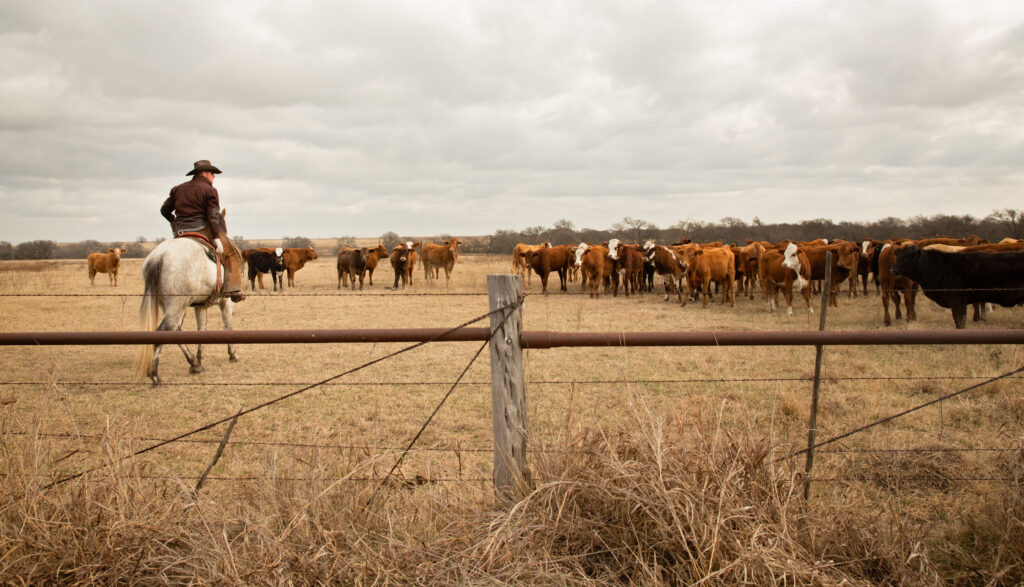
Checkoff dollars claim to help producers. In reality, they entrench corporate control, siphon farmers’ wealth, and fuel the system driving them out of business.
Our research is made possible by supporters like you.
Help fund our fight to create a food system that works for everyone, not just a handful of powerful corporations.
IMPACTS OF CONSOLIDATION
Is the U.S. really feeding the world? We’ve imported more agricultural products than we’ve exported for five of the last seven years.
Farm Action has been a leader in exposing corporate price gouging across the food and farm system. Below are just three examples of price gouging, and what we’re doing about it.
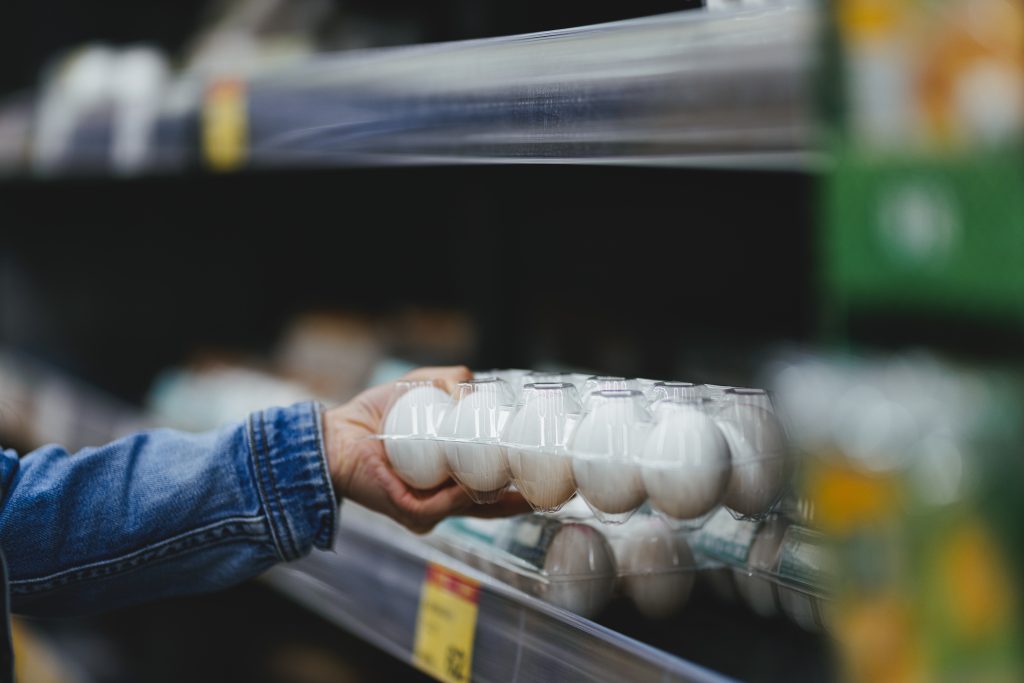
Farm Action’s letter to FTC and DOJ lays out new evidence on how the highly concentrated egg industry is ripe for manipulation by the dominant egg firms at the expense of both consumers and smaller egg producers.
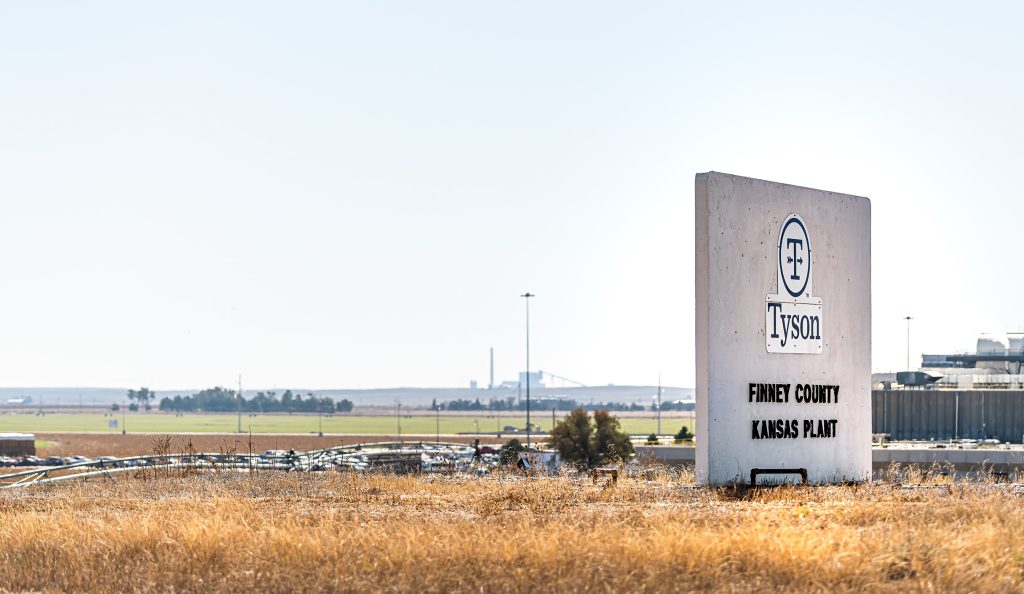
Three years after Tyson’s Holcomb KS plant fire, Big Meat is still using it as an example of a supply chain disruption — but this excuse just provides cover while they reap excessive profits.

With higher grain prices, farmers have more dollars to pay for inputs — and Farm Action suspects fertilizer corporations may be taking advantage of that.
Ten people from across the food supply chain share their first-person accounts of what it’s like to live, work, and try to earn a fair wage in our consolidated food and agriculture system.
ADDITIONAL RESOURCES
As farmers are driven off their land, it opens the door for investors — domestic and foreign alike — to snap up farmland. Millions of acres of farmland are now in the hands of investors, driving up prices up for everyone else and creating an entry barrier for new farmers. These investors then extract natural resources from rural communities and transfer that wealth to their shareholders. Learn more about the harms of foreign, corporate, and billionaire farmland ownership below.
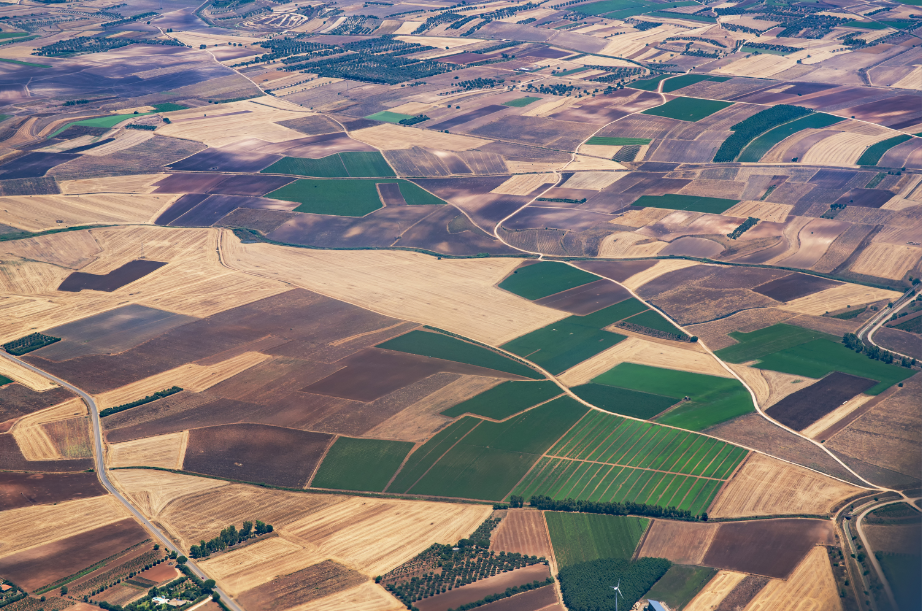
As of late 2019, foreign investors have held an interest in almost 35.2 million acres of U.S. farmland. That’s an area larger than the state of New York. In the past 17 years alone, foreign farmland holdings have doubled in the U.S. and the trend is showing no signs of slowing.

The speed, size, and secrecy of “Farmer Bill’s” land purchases set off alarm bells. Why does a tech-obsessed billionaire need 240,000 acres of farmland?
In this must-read piece, we reveal how Big Ag corporations pocket billions of dollars in taxpayer-funded farm subsidies.
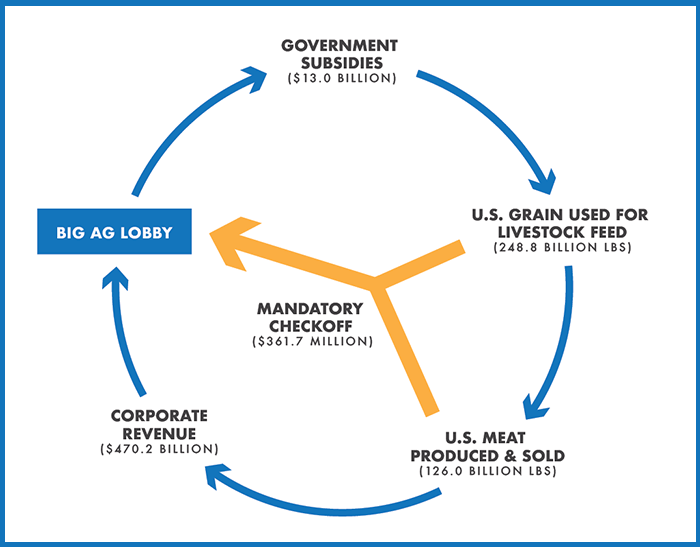
The U.S. has laws in place to protect producers and food system workers from abusive corporate power. You can file a complaint or tip if you suspect a violation of the Packers and Stockyards Act or any other federal law governing fair and competitive marketing and contract growing of livestock and poultry.
Please subscribe before reading and downloading.